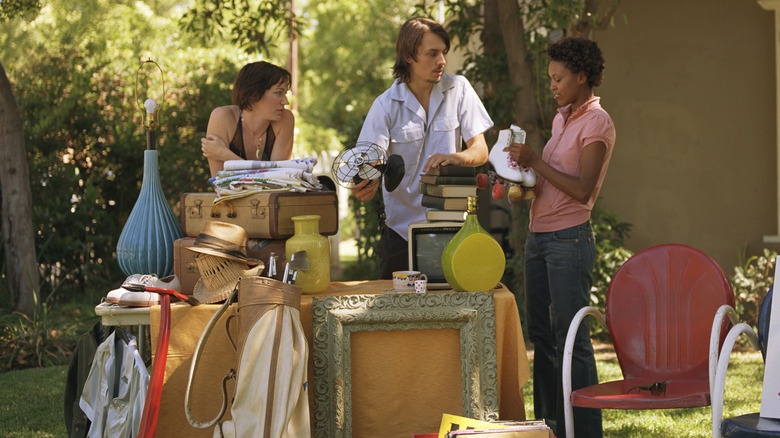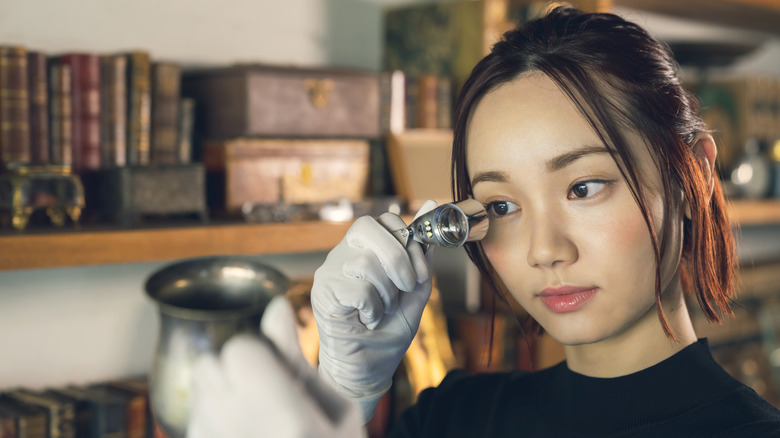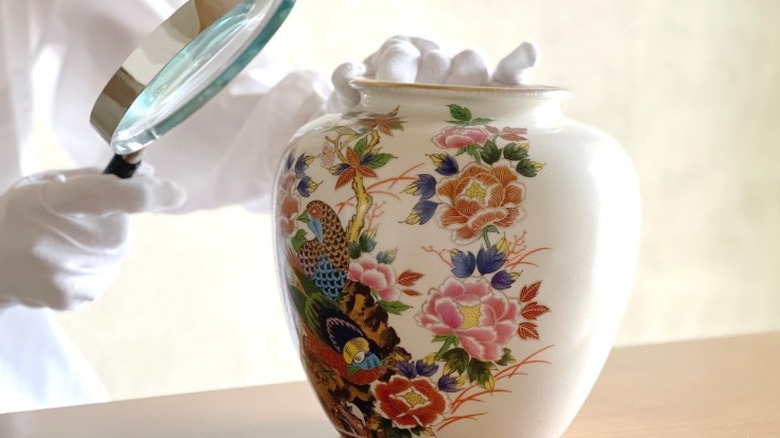The Crucial Mistake Everyone Makes When Planning An Estate Sale
Clearing out a loved one's home and planning for an estate sale after they've passed can be an emotional rollercoaster. When sorting through countless items that hold memories, it can be easy to make one common mistake. Not properly valuing the items you plan to sell by assuming you know what they are worth is one of the biggest errors many people make. Further, even if you're hosting an estate sale for your own belongings before downsizing, this is still a huge oversight you want to avoid making. While you may very well be tempted to just price items at whatever pops into your mind first and call it a day, you can lose a lot of money if you undervalue the belongings.
While you or your loved one's home might summon up a cozy and comfortable place that is familiar, there can be high-end or vintage items tucked away or even right out in the open. You may have even seen these items for years but never thought about their worth. An old, dusty painting in the attic could be a hidden piece of valued art, and that china tea set might be a collector's dream, even with the chip in it. Further, an otherwise ordinary bookshelf could hold a first-edition novel worth a fortune. Without proper assessment, these potential goldmines can easily end up underpriced, gathering dust at a flea market, or worse, tossed in the trash.
Benefits of a professional appraiser
The main consequence of undervaluing estate sale items is lost profit. You can easily sell a vintage watch for $50 when it's actually worth $500, or donate a collectible figurine to a thrift store only to find it later featured on an antique show for thousands. Every underpriced item represents money left on the table — money that could benefit you and your family during a potentially-stressful time. That's why it's important to get the opinion of a professional appraiser who will be able to tell if your antiques are worth anything.
Further, letting a professional handle the valuation process can lift a huge weight off your shoulders. It saves you time, reduces stress, and provides peace of mind knowing you're getting the best possible value for your or your loved one's items. Emotional attachment can often cloud judgment. You may find items that have a deep sentimental meaning, which can lead to the opposite problem — overvaluing items with little market value. Be objective about the condition, rarity, and market appeal of your items. A piece might be priceless to you, but an appraiser can help you see it objectively and help separate emotional value from monetary value.
How to hire a professional appraiser
One of the best tips for making the most you can from an estate sale is to hire a professional appraiser who has the knowledge necessary to value items. They can research market trends and pinpoint the true value of your belongings. Additionally, keep in mind that appraisers don't just give you a price tag. They also provide valuable information about the items such as their history, provenance, and potential repair needs. This knowledge can help you make informed decisions about whether to sell, restore, or donate certain items. They can also navigate the complexities of different markets and collectibles, ensuring your items reach the right audience.
Start by researching online to get a ballpark estimate of what similar items are selling for, or get an online photo assessment. Then, contact a reputable appraiser who specializes in the types of items you have. Get quotes from several professionals to compare prices, or search the American Society of Appraisers for high-quality professionals. If an item doesn't have a high resale value, consider other options like donating it to a charity or gifting it to a family member who will appreciate it. By doing your homework, you can turn an emotional and uncertain time into an overall positive experience and ensure you or your loved one's belongings are ultimately valued correctly.


